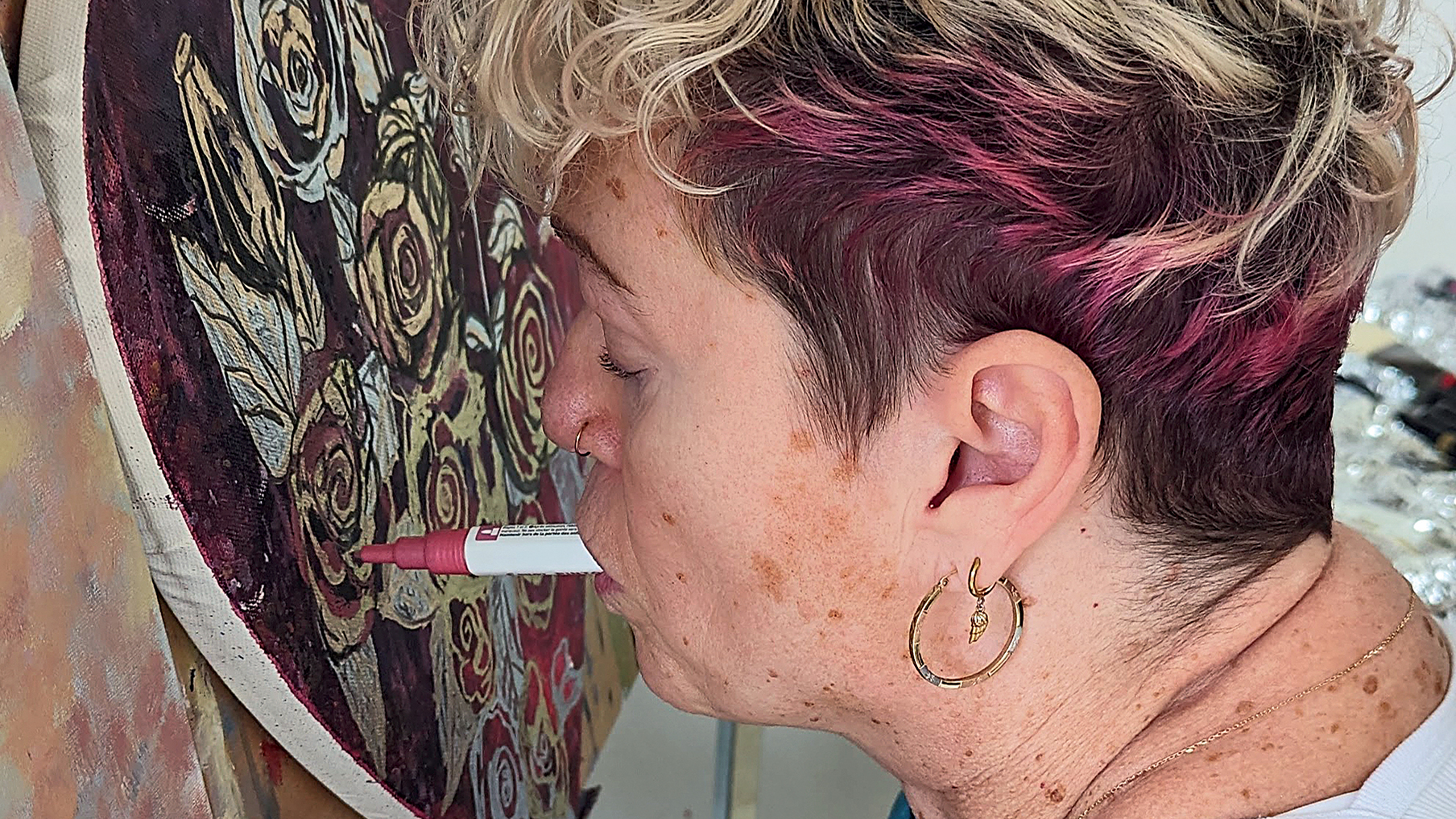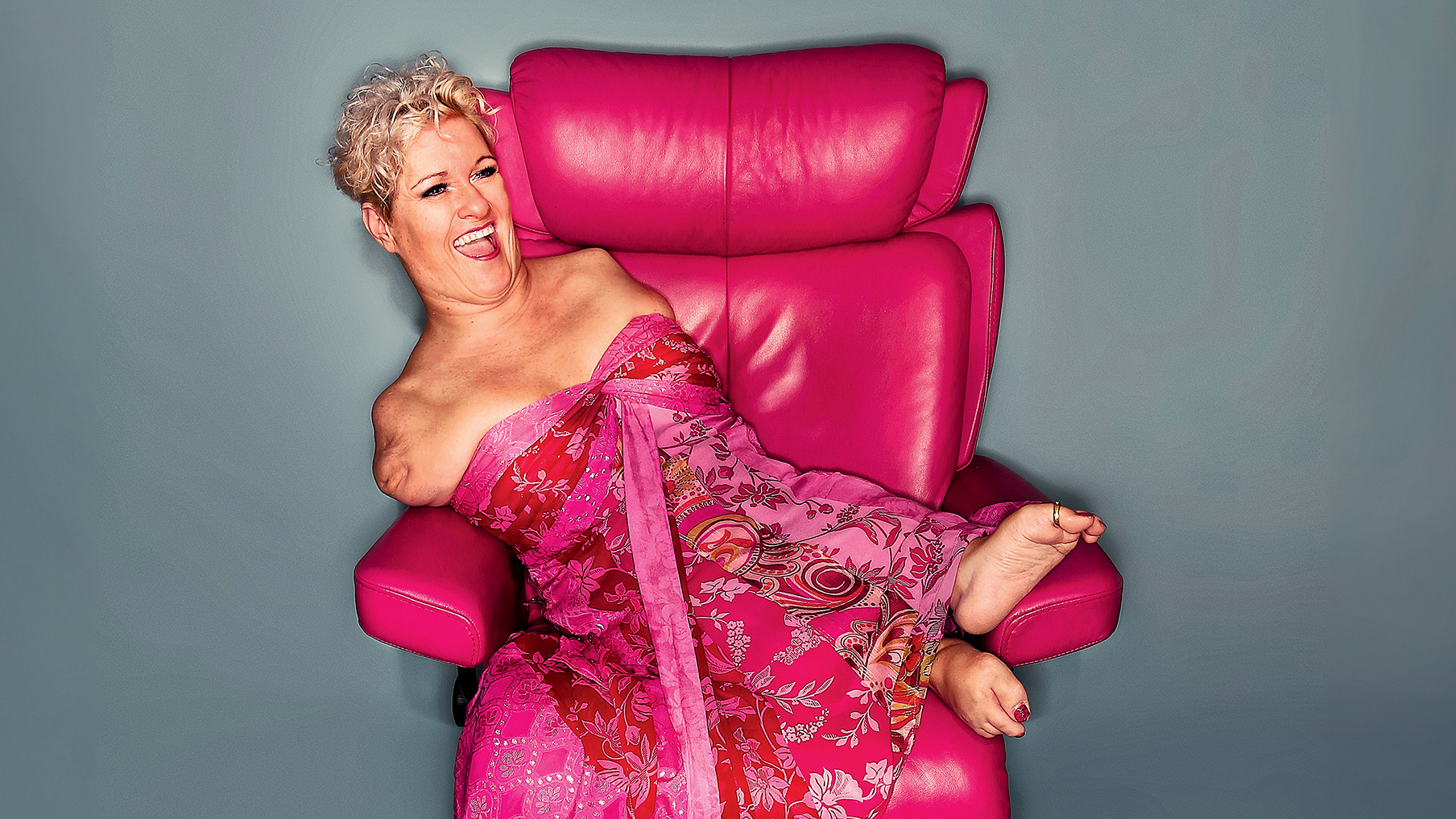“As a child, I used to draw all the time, often using my feet. Even then, it was a release for me. After an operation on my foot, I had to relearn how to paint with my mouth. It took time to get good again, but it was always something I needed and wanted to do.
“My painting ability is a mix of self-taught skills and formal lessons. I completed a Fine Art degree at the University of Brighton, graduating with first-class honours.
“My painting career began early, at 16. The Mouth and Foot Painting Association (MFPA) invited me to join as a student member, and I’m now a full-time member. At that age, I also won an art competition at school, and my painting was featured in the local papers. I didn’t become a professional painter overnight, though - it took about 15 years for the MFPA to consider me a full-time artist.”
“Painting is a part of me, not just something I do as a job. I don’t think I’d be the same without it. As an artist, I’m always pushing myself to improve, but I’m particularly drawn to figurative painting. That’s my happy place. I’m 60, and I’ve always joked that by the time I’m 90, I’ll be quite good at what I do. It’s all about practice – you never stop learning.

Art as therapy
“Painting allows me to express what I feel. It’s my motivation and what gets me out of bed in the morning. With art, I don't need words to communicate how I’m feeling.
“Throughout my career, I’ve incorporated my body into my paintings - it’s important to show that everyone is beautiful in their own way. Having a disability isn’t a burden or something to hide. I use my body to break down barriers. Just because my body is different, it doesn’t mean it’s not beautiful. I believe people with disabilities should feel proud of who they are.
“Painting has helped me through some dark times, too. My son, Parys, died six years ago, and it’s been a tough journey. Without painting, I might not have had a way to express my grief.
“I’ve participated in many British exhibitions, including at the Royal Festival Hall, but I’m most proud of Lost in Parys, an exhibition about my late son. It tells a story of grief, but also addresses mental health and stresses the importance of taking it seriously.
"Following my son’s passing, I set up a charity called The Drug of Art, which encourages using art and creative expression, including painting, to support young people with their mental health and wellbeing. I discuss how art has helped many artists in my podcast, The Drug of Art with Alison Lapper.
“Marc Quinn’s statue is a huge part of my journey, as a lot of people know me from that. It’s very special to me and holds a lot of meaning. I didn’t think it would become a memorial piece. Thinking back to when Marc initially asked me, I was hesitant but it’s absolutely incredible, I couldn’t have asked for better really. Marc is now a good friend, too.
Milestones of success
“I received an MBE for services to art in 2003, and, in 2014, I was awarded an honorary doctorate from the University of Brighton, on top of my Fine Art degree.
“I’ve featured in BBC documentaries such as In My Own Words and Child of Our Time, and I've published a book, My Life in My Hands. Many good things have come to me because I put myself out there, showing others that they can achieve things despite any challenges. Disability should never be a barrier.
“As for the future, I’d like to do more Lost in Parys exhibitions and take my paintings around the country. The message about mental health is so important, and I want to share it with as many people as possible.”
How to get involved
- Visit the Mouth and Foot painting artists website to paint alongside artists and learn their techniques
- Check the Eventbrite website for free online art classes for individuals with special needs
- Go to the Arts for Life Project website to see the what they have on to support young people who have additional needs
- Check out Sense's website for more art sessions around the UK
About Alison
Alison Lapper is a renowned artist from Burton upon Trent, Staffordshire. She was born without arms and shortened legs due to phocomelia.





